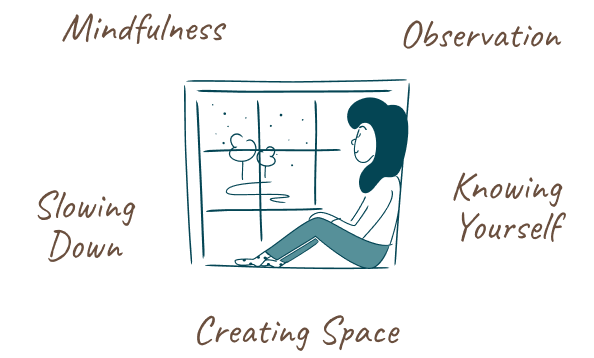Why does internal awareness matter?
Within the field of ILR, there has been a strong narrative of urgency, crisis, and extinction that contributes to ILR practitioners operating in survival mode. Many ILR practitioners that I work with, facing directly imminent language loss, move through life with a sense of constant threat to their languages, cultures, and communities. Some ILR practitioners face those challenges daily. The problem is feeling like you are fighting for survival that tips our psychobiological responses into high alert. Our nervous systems do not distinguish between dangers when it comes to threat. Our nervous systems don’t distinguish between a physical grizzly bear attacking you, a colonial grizzly bear attacking you with a bureaucratic system, or a tribal member grizzly bear attacking you because their kid didn’t get into the immersion school.
What does internal awareness help you do?
As an ILR practitioner you must develop your internal awareness to distinguish between what constitutes an actual real threat to your safety, and what feels threatening. It’s confusing because the colonial bureaucracy is trying to destroy you, but it’s not a grizzly bear. Going into a highly activated state every time a colonial system does something bureaucratic is appropriate moral outrage, but it’s also bad for your wellbeing. It’s for your own wellbeing that you must grow your internal awareness-and agency-over your embodied responses. Nobody taught me about embodied responses, and I walked around for two decades with a highly activated nervous system fighting colonial systems. My moral outrage was appropriate, but the negative impact on my wellbeing was high.
Can do statements for internal awareness
Internal awareness is a skill that you develop through practices like mindfulness, meditation, and yoga.
Journaling and Reflection Exercises
Write down in a journal your reflections on these questions.





